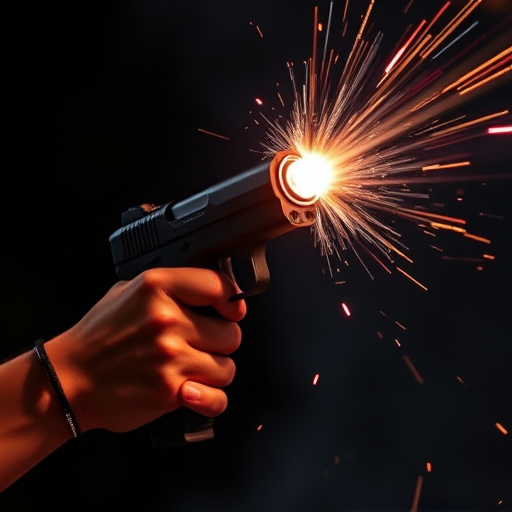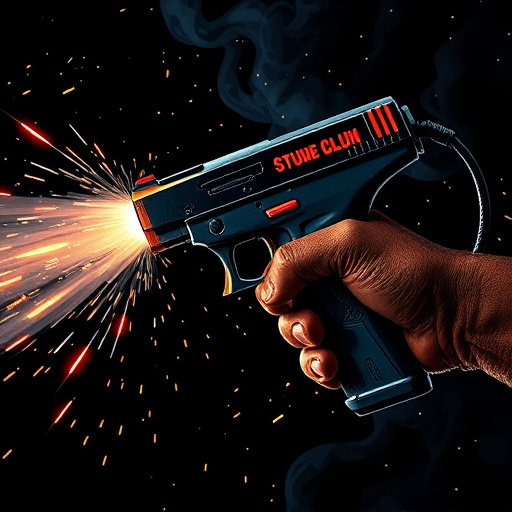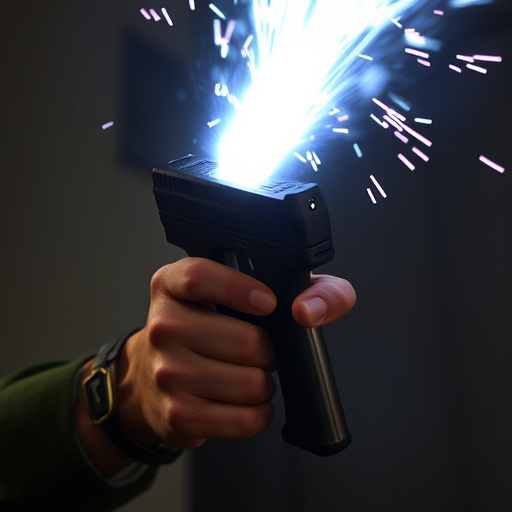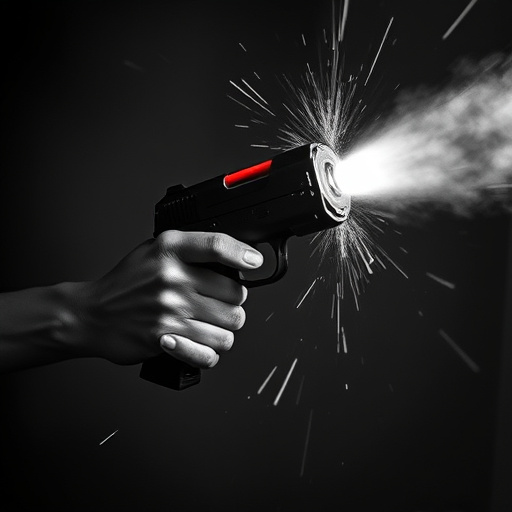Understanding Taser or stun gun ownership involves navigating state laws that vary significantly. Key factors include age restrictions, background checks, training requirements, and intended purposes for self-defense or personal safety. Unlike firearms, tasers have stricter rules due to potential misuse, with variations in open/concealed carry and power output limitations. Knowing these legal aspects is crucial before considering ownership, as a stun gun doesn't always 'knock you out' due to model differences, battery life, and individual tolerance. Navigating state laws and understanding the reality of how stun guns work is essential for responsible and safe handling.
“Exploring the legal landscape of civilian taser ownership: A comprehensive guide. In today’s world, self-defense options are diverse, and stun guns, or tasers, have emerged as a popular choice. However, understanding state laws is crucial before considering ownership. This article delves into ‘Understanding Taser Ownership’ from a legal standpoint, detailing ‘State-by-State Requirements’ for civilian use. We also examine the ‘Effectiveness and Safety Concerns’ of stun guns and provide insights on ‘Accessing Local Laws’ to ensure responsible ownership. Learn about the regulations surrounding these devices, including restrictions on ‘does a stun gun knock you out,’ to make informed decisions.”
- Understanding Taser Ownership: A Legal Perspective
- State-by-State Requirements for Civilian Use of Tasers
- The Effectiveness and Safety Concerns of Stun Guns
- Accessing and Complying with Local Laws Regarding Taser Ownership
Understanding Taser Ownership: A Legal Perspective

Understanding Taser ownership involves delving into state laws, as these regulations dictate who can legally possess and use such devices. While stun guns, or tasers, are designed to incapacitate individuals non-fatally, their possession is subject to strict legal frameworks. Key considerations include age restrictions, background checks, training requirements, and purposes for ownership—self-defense, personal safety, or other authorized uses.
Unlike firearms, which have broader ownership rights, tasers operate under more stringent rules due to their potential for misuse. State laws vary widely regarding does a stun gun knock you out? Some states allow open carry, while others restrict it to concealed carry with special permits. Additionally, certain jurisdictions may limit the power output of tasers to ensure they don’t cause lasting harm. Understanding these legal aspects is crucial for individuals considering civilian taser ownership.
State-by-State Requirements for Civilian Use of Tasers

In the United States, the regulations surrounding civilian taser ownership vary greatly from state to state. Understanding these requirements is crucial before considering the acquisition of a stun gun. Some states have very permissive laws, allowing individuals to own tasers with minimal restrictions, while others have stringent regulations or outright prohibit their private citizen use.
For instance, certain states require individuals to obtain a permit to purchase a taser, while others do not. Some mandate age restrictions, typically 21 years or older, whereas others may not have any minimum age requirement. Additionally, there are varying rules regarding the type of taser that can be owned; some states only permit the use of non-lethal models, while others allow for more powerful devices. Remember, the question often arises: does a stun gun knock you out? While these devices are designed to incapacitate through electric shock, their effectiveness and the extent of their impact vary based on factors like the model, battery life, and individual tolerance. It’s essential to familiarize yourself with your state’s specific laws before making any purchases.
The Effectiveness and Safety Concerns of Stun Guns

Stun guns, also known as electronic control devices (ECDs), have gained popularity among civilians seeking personal protection. However, their effectiveness and safety remain topics of debate. One common misconception is that stun guns can knock a target out instantly. While they deliver a powerful electric shock designed to incapacitate the individual for several seconds, it rarely leads to permanent loss of consciousness. The shock disrupts muscle control, causing the person to fall and temporarily lose balance but does not induce unconsciousness.
Safety concerns arise from the unpredictability of stun gun use, especially in stressful situations. Improper usage or misjudgments can result in unnecessary harm or even accidental injuries. Additionally, not all targets will be incapacitated by the shock, posing potential risks to users and bystanders if the assailant retains the ability to fight back. These factors underscore the importance of understanding state laws regarding stun gun ownership and usage to ensure responsible and safe handling.
Accessing and Complying with Local Laws Regarding Taser Ownership

Accessing and understanding your local laws is a crucial step before considering owning a taser, or stun gun as they are often called. The legal landscape surrounding civilian stun gun ownership varies greatly from state to state in the US, with some allowing open carry while others have stringent requirements. It’s essential to check with your local law enforcement agency or government website for specific regulations, which may include permit requirements, waiting periods, and restrictions on certain types of stun guns or their use.
One common concern regarding tasers is whether they can knock someone out. While a stun gun delivers a powerful electric shock designed to incapacitate temporarily, it does not typically induce unconsciousness. The effect is intended to disrupt muscle control, causing the target to fall to the ground and remain immobilized for several minutes. However, the duration of the shock and its intensity can vary, so understanding local laws regarding stun gun use, including safe handling practices, is paramount for responsible ownership.
Understanding the legal landscape surrounding taser ownership is crucial for civilians considering their self-defense options. While stun guns, or tasers, offer a non-lethal way to incapacitate an assailant, state laws vary widely in terms of permit requirements and restrictions. It’s essential to research and comply with local regulations to ensure safe and legal use. Remember that, contrary to popular belief, a taser doesn’t always knock someone out; its effectiveness depends on various factors, including the model, distance, and target area. By familiarizing themselves with state-by-state rules and being mindful of safety concerns, responsible citizens can make informed decisions about civilian taser ownership.
